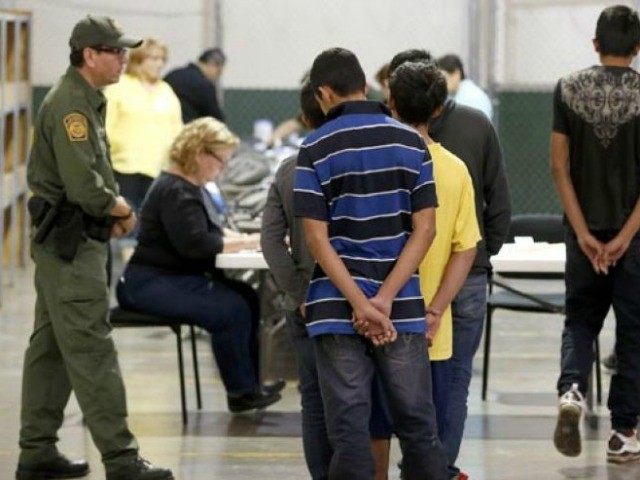The federal government missed an estimated $41.1 million in “cost savings” transporting immigrant detainees on charter flights due to an inefficient use of resources — namely flying with empty seats — a government watchdog concludes.
A Department of Homeland Security Inspector General report released this month reveals that while U.S. Immigration and Customs Enforcement’s Air Operations (ICE Air) met its responsibilities in transporting 930,435 immigrant detainees in a three-and-a-half year timeframe, it failed to document enough data on the detainees or fill seats effectively.
ICE Air is the agency’s “air transportation arm” and is responsible for moving and removing immigrant detainees within the U.S. and abroad.
According to the report, it costs ICE Air $8,419 per flight hour for charter flights of this nature. The cost is the same no matter the number of passengers on board. So due to ineffective management, planning, and data capture, ICE Air missed out on available savings.
“As a result, ICE Air operated charter flights with empty seats and could have realized cost savings of up to $41.1 million upon determining optimum flight capacity,” the report reads. “This estimate is based on the average of charter costs incurred during the scope period for the missions analyzed. Although the estimated potential cost savings will not be claimed as funds put to better use, it is an indicator of ICE Air’s potential for future cost savings.”
The report explains that from October 1, 2010 through March 31, 2014, ICE Air said it spent about $598 million, of which $464 million went to fund charter flights.
The IG reported that ICE Air spent about $116 million on flights that were filled below 80 percent capacity in that timeframe — including nearly $12 million on flights filled to less than 40 percent capacity.
Other ineffective data-keeping cited in the IG report included incomplete information about the gender, criminal status and gang affiliations of transported detainees.
The IG made four recommendations to help ICE Air improve its operations, including more defined policies, staff training, efficiency review, and a data management plan. According to the report, ICE Air concurred.
“ICE officials must ensure that management and staff use their program’s resources effectively. ICE has started taking action to implement our recommendations, which, once implemented, should provide improvements to the program and assurances that taxpayer funds are being spent efficiently,” Inspector General John Roth said in a statement.

COMMENTS
Please let us know if you're having issues with commenting.